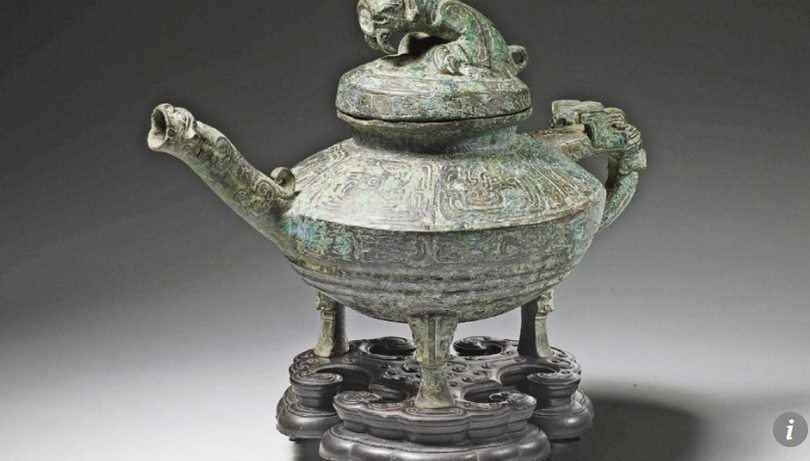Just recently, a rare sacred Chinese bronze water vessel, that was created between 2,200 and 3,600 years ago, has been sold despite protests by the Chinese government.
The newly discovered bronze Tiger Ying was sold at an auction for a sum of £410,000 according to Canterbury Auction Galleries on Thursday.
However, given the fact that China's State Administration of Cultural Heritage condemned the auction, the protest did nothing to stop the proceedings. The Administration said that the relic was taken illegally from the country in the 19th Century.
Only six similar vessels were previously known to exist.
The sold vessel dates from the Western Zhou dynasty - 1027-771 BC - and was named the Tiger Ying because the spout and cover were each cast with models of the animal, the auctioneers said.
The infamous vessel was believed to have been taken by a British soldier during the capture of what is now called the Old Summer Palace in 1860. The auction house said letters from a Royal Marines captain to his family detailed the looting of the site, with one reading: "I succeeded in getting several bronzes and enamel vases that will, I hope, someday find their way to [his home in the UK]."
The vessel was found along with three other relics which include Qing dynasty bronze works of art in a home in Kent and had been given an estimated price of between £120,000 and £200,000, a Canterbury Auction Galleries spokesman said.
The Chinese government agency stated it had contacted the auction house "through various channels", demanding the cancellation of the sale and telling the auction house to "abide by the spirit of international agreements and code of professional ethics, as well as respecting the cultural rights and national feelings of the Chinese people".
According to Hajni Elias, a Chinese art and cultural historian: "We cannot underestimate the wealth and sophistication of the late Zhou culture that created such an outstanding bronze vessel. Only men of high status, such as a king, his nobles and officials were able to obtain them.
"They represent some of the finest vessels and are treasured by collectors and connoisseurs worldwide."
On the other hand, the State Administration of Cultural Heritage said it would "continue to take all necessary measures to retrieve cultural relics illegally obtained from China".
Meanwhile, the auctioneers said that they would not be commenting on the Chinese requests.








